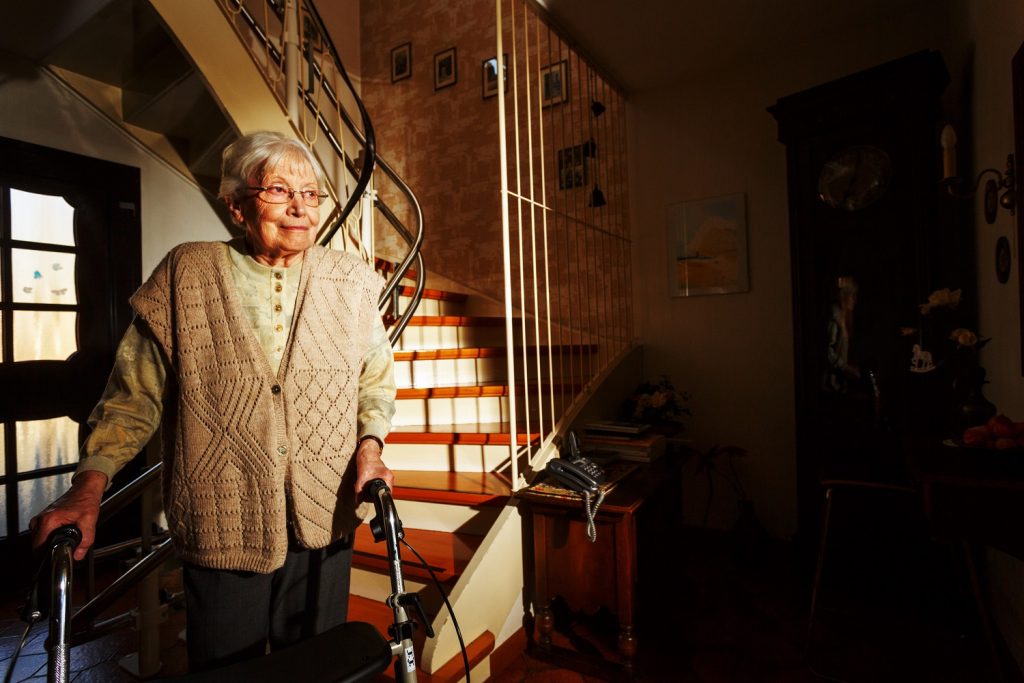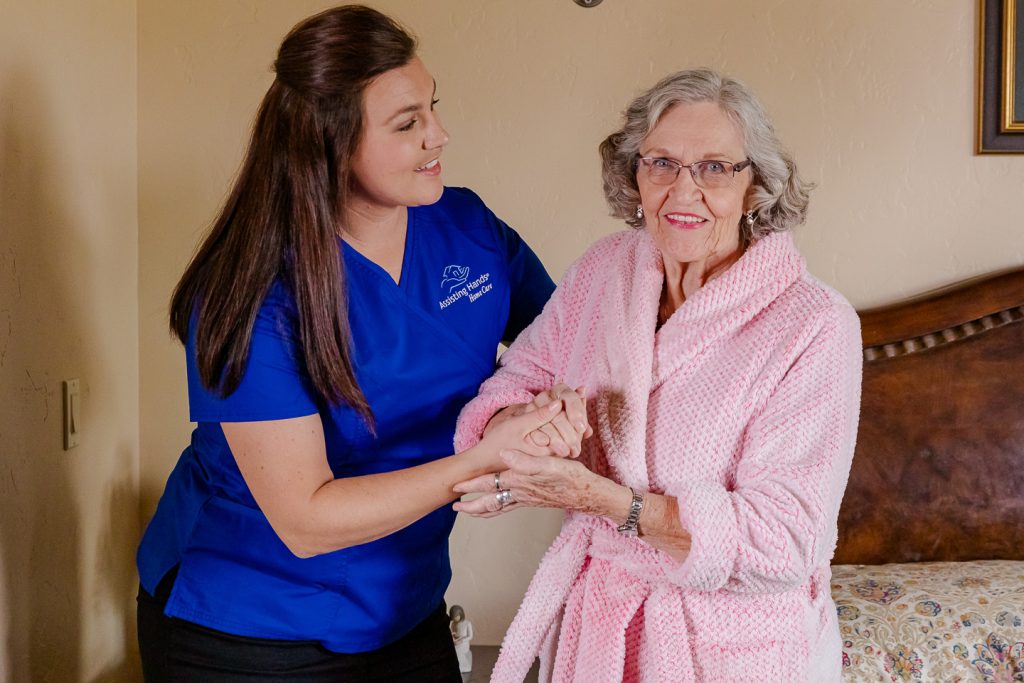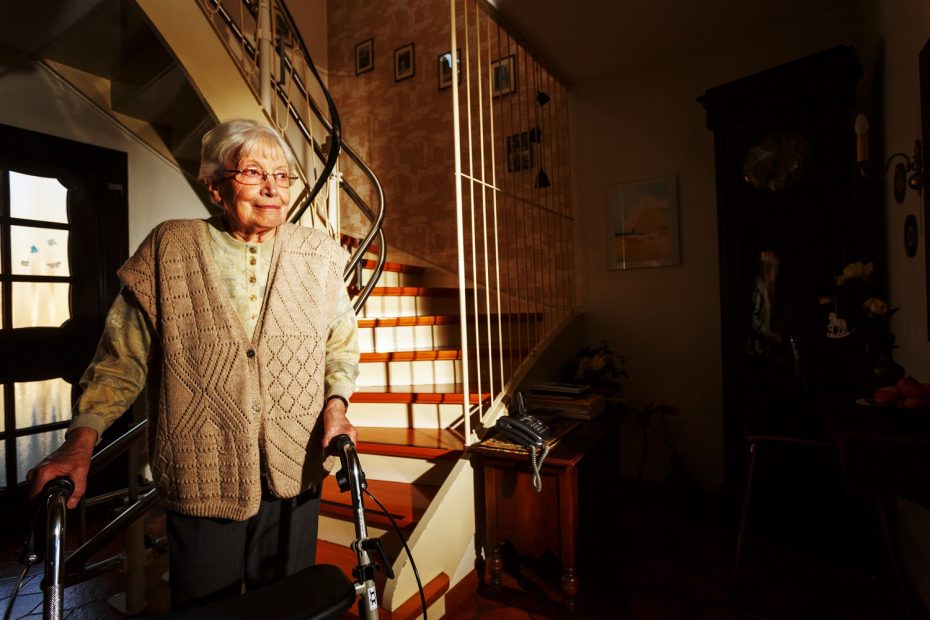
Aging adults require a quality night’s rest to feel alert and refreshed upon waking. However, as people grow older, sleep patterns change. When sleep patterns shift, seniors may experience a range of issues related to sleep. Here are common sleeping issues older individuals may face.
People 65 and older are recommended to have 7 to 8 hours of quality sleep per night. Sleeping well throughout the night is necessary to restore energy levels. A good night’s rest will heal cognitive or physical damages. Optimal daytime functioning is an outcome of adequate nighttime sleep.
Sleeping increases seniors’ alertness during the day. Memory and attention spans are enhanced. Older adults who sleep well experience less anxiety, depression and stress. Cardiovascular health is improved along with a reduced risk of falls. In general, seniors who sleep optimally are happier and more engaged.
What causes sleep disruptions in the elderly?
The benefits of sleep are clear. However, seniors commonly experience disruptions to sleep. Older adults’ internal clocks cause them to drift off to sleep sooner at night and wake up earlier in the morning. As a result, insomnia and sleep deprivation frequently occur in the older population.
Furthermore, seniors might be prescribed medications with side effects that affect their ability to sleep throughout the night. Antidepressants and decongestants have stimulating effects, keeping seniors awake. Diuretics used at night force seniors to awaken repeatedly to use the bathroom.
Health issues disrupt typical sleep patterns, too. Painful arthritis and cardiovascular and pulmonary diseases may delay the senior’s ability to fall asleep and likewise shorten their length of sleep. The onset of Alzheimer’s disease has the likelihood of deteriorating the sleep/wake cycle.
Concerns with aging and the resulting anxiety can trigger unhealthy sleep in older adult populations. Psychiatric disorders, such as major depression, may lead to insomnia. Waking early in the morning is an exacerbated symptom that often accompanies depression in the elderly.
Seniors undergo lifestyle changes that lead to psychological manifestations and affect sleep habits. The loss of loved ones or moving into unfamiliar settings (such as assisted living facilities) are common lifestyle adjustments experienced by seniors; such changes can disrupt normal sleep.
Aging adults suffering from dementia wake up at night, experience confusion and wander. Losing valuable nighttime sleep creates daytime sleepiness. Changes in the brain of dementia patients are responsible for sleep disruptions. More frequent sleep disruptions occur as dementia becomes severe.
What sleep issues do seniors face?
1. Sleep Apnea
Sleep apnea is accompanied by loud snoring and repeated instances of brief awakening during sleep. An elderly patient with sleep apnea may report insomnia; however, excessive daytime sleepiness is more common. Blood oxygen saturation declines and results in a decline in daytime alertness.
Consistent positive airway pressure during sleep is effective in reducing sleep apnea. The elderly individual wears a tight-fitting nasal mask to achieve the necessary pressure. Controlled sleep apnea leads to improved nighttime sleep, increased daytime alertness, and higher overall functioning.
2. REM-Behavior Disorder
Although rare, REM-behavior disorder predominantly affects elderly individuals. A patient suffering from the disorder is likely to thrash in bed or leap and fall from the bed. Physical injury is likely to be the adverse outcome of falling or leaping. Control of the disorder may be achieved with medication.
3. Restless Leg Syndrome
A senior who experiences intense leg discomfort while at rest will attempt to lessen the creepy-crawly sensations by walking around—a condition called restless leg syndrome. Continually feeling the need to move the legs to relieve discomfort interferes with the senior’s ability to fall and stay sleep.
4. Periodic Limb Movement Disorder
Sometimes accompanying restless leg syndrome is another primary sleep disorder called periodic limb movement disorder. Seniors with this condition kick or otherwise move the legs hundreds of times during a single night. The individual does not awaken but experiences brief arousals.
Treatments of both restless leg syndrome and periodic limb movement disorder are influenced by the level of distress experienced by the senior. Relief may be found by engaging in regular physical exercise. Some seniors are comforted by immersing their legs and feet in a warm bath.
How do seniors improve sleep patterns?
Seniors who follow a regular sleeping and waking schedule enhance their sleep habits. Prior to evening, older adults should avoid caffeinated beverages and alcohol. Reserve time spent in bed solely for sleeping. Practice a relaxing bedtime routine to encourage a good night’s rest.
Exposure to daylight is among the greatest impacts on seniors’ quality of sleep. Older people exposed to 30 to 60 minutes of bright light in the evenings reduce the likelihood of early morning awakenings. In seniors with late sleep onset issues, regular exposure to bright light in the mornings helps.

Quality sleep is an important part of a senior’s healthy lifestyle. Families who support an elderly loved one during the day may lack the energy to provide continuous care throughout the night. When seniors need support at night, Assisting Hands Home Care overnight care services are beneficial.
Experienced caregivers from our home care team serve elderly care recipients in the comfort of home. We are available to provide care during the day as well as throughout the night. In the event of a senior’s nighttime emergency, our professionals are awake and alert to respond to the situation.
Overnight care services from Assisting Hands Home Care are comprehensive. Our professional caregivers support seniors with nighttime personal hygiene tasks and bedtime routines. We promote safety and comfort in seniors who need to get up at night to use the bathroom.
Whether your aging loved one suffers from dementia, vision loss or has recently returned from surgery, Assisting Hand Home Care overnight care services are an invaluable resource. Receiving care in the comfort and familiarity of a home environment also has the potential to promote a senior’s sleep.
We deliver compassionate care to seniors with all levels of functioning. Our home care agency assists seniors living in Glen Ellyn, Warrenville, Naperville, Westmont, Woodridge, Lisle, Wheaton, Illinois, and the surrounding communities in DuPage County. Call us at (630) 634-9316 to schedule a complimentary consultation and begin the senior care that will enhance quality of life.
















